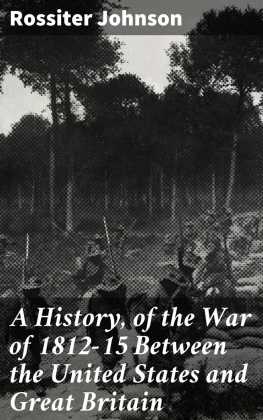THE HERO OF MANILA.
Table of Contents
CHAPTER I.
THE PHILOSOPHY OF FIGHTING.
It is not necessary to visit the Bay of Naples in order to witness a beautiful sunset. Our own atmosphere and our own waters produce those that are quite as gorgeous, while our own mountains and woodlands give them as worthy a setting as any in the world.
Half a century ago a little boy sat at his chamber window in Vermont looking at a summer sunset. He was so absorbed in the scene before him and in his own thoughts that he did not notice the entrance of his father until he spoke.
"What are you thinking about, George?" said the father.
"About ships," the boy answered, without turning his head.
"What kind of ships?"
"I can see nearly every kind," said George.
"See themwhere?" said his father, looking over his shoulder.
"Right there in the sunset clouds," said the boy.
"Oh!" said his father; and then, after looking a while, added, "Suppose you point out a few of them."
"Do you see that small cloud, at some distance from the othersthe one that is rather long and narrow, with a narrower one alongside?"
"Yes, I see that."
"Well, that," said the boy, "is a Brazilian catamaran, and those little knobs at the top are the heads of the men that are paddling it."
"Just so," said his father. "What else can you see?"
"The catamaran," said George, "is pulling out to that clipper ship which has just come to anchor off the port. The clipper is the large one, with her sails furled. Probably the Indians have some fruit on board, which they hope to sell to the sailors."
"Quite natural," said the father.
"And that smaller one, under full sail, fore-and-aft rigged, is a schooner in the coasting trade."
"That one appears to be changing shape rapidly," said the father.
"Yes," said the boy. "She is tacking, and you see her at a different angle."
"I might have suspected as much," said the father, "but I never was a good sailor."
"That very large one," continued the boy, "with a big spread of canvas and holes in her hull, where the red sunlight pours through, is an old-fashioned seventy-four, with all her battle-lanterns lit."
"A pretty fancy," said the father, who evidently was becoming more interested and better able to see the pictures that were so vivid to his son.
"Do you see that dark one over at the right, with one near it that is very red and very ragged?" said the boy.
"I do."
"Those are the Constitution and the Java. They had their famous battle yesterday, and the Java was so badly cut up that to-day Bainbridge has removed her crew and set her on fire. She will blow up pretty soon."
"I should like to see it," said the father.
"And if you look over there to the left," said the boy, "you see quite a collection of rather small ones, most of them very red, some half red and half black. It looks a little confused at first, but when you know what it is you can see plainly enough that it is the battle of Lake Erie. In the very center there is a small boat, and on it something that looks black and blue and red, with a little white. The black is cannon smoke. The blue and red and white is the American flag, which Perry is taking over to the Niagara, because the Lawrence is so badly damaged that he has had to leave her. That one with only one mast standing is the Lawrence."
"Yes, my son, I think you have accounted beautifully for everything there except one. What is that dark one, with rounded ends and no mast, just beyond the clipper?"
"Oh, that," said the boy, taking a moment for reflection. "I think that must be a bullhead boat on the Delaware and Hudson Canal."
"It is a good representation of one," said his father, smiling. "But, George, how came you to know so much about ships and boats and naval history?"
"By reading all I could find about them, sir."
"Well, George, I am really pleased," said Dr. Dewey; "pleased and encouraged to know that you have taken to reading instead of fighting. I was afraid you never would love books; but now that you have begun, you shall have all the good ones you will read."
"Thank you, father, I shall be glad of them."
"But come now, my son, supper is ready, and your sister is waiting for us."
"I will come pretty soon," said George, and his father descended the stairs.
A little later the boy went slowly down, and quietly slipped into his place at the table.
In a few minutes Dr. Dewey looked up, then started as if surprised, and dropped his hands to the edge of the table. He took a sharp look at George, and then said:
"What does that mean? How came you by that black eye?"
"There is only one way to get a black eye that I know of," said the boy.
"Fighting?"
"Yes, sir."
The doctor was silent for several minutes, and then said:
"I don't know what to say to you or do to you, my son. You know what I have said to you about your fighting habit, and you know that I mean it, for I have not only talked to you, but punished you. When I found you had been reading history I took new hope, for I thought you must have got past the fighting age and given your mind to better things. But here you are again with the marks of a pugilist."
"I don't fight when I can help it, and I'm afraid I never shall get past the fighting age," said George.
"Don't fight when you can help it?" said his father. "Can't you always help it?"
"I might by running away. Do you want me to do that?" the boy answered quietly.
"Of course I don't," said the doctor quickly. "But can't you keep away?"
"I have to go to school," said George, "and I have to be with the boys; and some of them are quarrelsome, and some are full of conceit, and some need a good licking now and then."
"And you consider it your duty to administer it," said the doctor. "Conceit is a crime that can not be too severely punished."
The boy felt the irony of his father's remark, and saw that he did not quite understand that use of the word "conceit," so he proceeded to explain:










